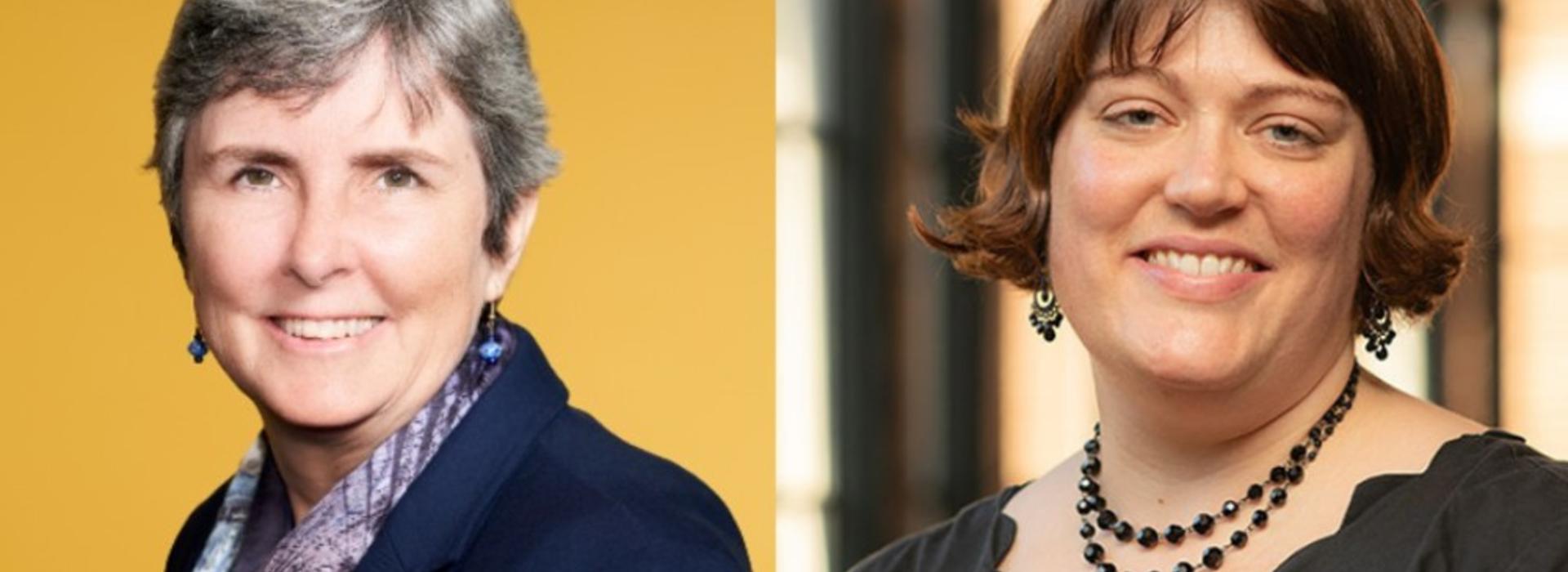
[VIDEO] Ask a U of M Expert: Staying healthy over the holidays
MINNEAPOLIS/ST. PAUL (11/21/2022) — Many families are coming together for the holidays after two years of celebrations dampened by the pandemic. This comes as flu and respiratory syncytial virus (RSV) cases rise nationwide, according to the Centers for Disease Control and Prevention.
University of Minnesota Medical School experts Jill Foster and Beth Thielen share tips to stay healthy and safe this holiday season amid COVID-19, flu and RSV concerns.
1:05 — How does our current place in the COVD-19 pandemic compare to past years?
Dr. Thielen: In a lot of ways, we are better off than in past years. COVID-19 vaccines are available for all people down to 6 months of age and this winter’s vaccines are updated to account for new strains. We have learned much about how to support patients with COVID-19 and have several drugs that can shorten the course of illness. However, in other ways, we are still struggling. Our healthcare workforce is depleted after two and a half years of caring for many sick patients. WIth the emergence of new COVID-19 variants, some of the therapies for treating disease have become less effective. The biggest issue right now is our hospitals, including our pediatric hospitals, are overwhelmed with patients facing severe disease from other respiratory viruses like RSV and influenza. These had been largely dormant during the past two seasons due to masking and distancing but have returned with a vengeance now that the precautions have largely been lifted.
0:27 — What is the current outlook for COVID-19 and flu cases in the U.S. over the month?
Dr. Foster: Using my crystal ball, I’d have to say that we are in for more of the same of what we’re experiencing now. Lots of crowded hospitals, especially emergency rooms and outpatient settings. As the weather gets colder, people move inside and the holidays and gatherings associated with them occur. It becomes simple math. We will have people who are sick with a variety of respiratory viruses mixed with people who don’t have sufficient immunity to them and people are going to get sick.
0:47 —What can individuals do ahead of time to protect themselves against the flu/COVID?
Dr. Thielen: Vaccination, vaccination, vaccination for both COVID-19 and influenza. We have safe and effective vaccines for both. If people still haven’t received their primary COVID series, it isn’t too late. This is particularly important for children, in whom vaccination rates remain quite low. Everyone 6 years and older should get their bivalent COVID booster. For influenza, we have vaccines available for everyone 6 months and older. Even if you are young and healthy, you should still get vaccinated because severe disease, though rare, can occur even in children. Vaccination also helps protect the vulnerable in our community.
0:18 — What precautions can groups take to safely gather for the holidays?
Dr. Foster: There is plenty that people can do. Staying home when sick and wearing a mask when it’s practical. People may think masks are past, but they’re not. Washing your hands, avoiding big gatherings — not all of them, but be careful of where and go and when. Of course, getting your flu and COVID vaccines.
Dr. Beth Thielen is a physician-scientist trained in adult and pediatric infectious diseases with the University of Minnesota Medical School and M Physicians. She is developing a translational research program focused on the molecular epidemiology and viral pathogenesis of human respiratory viral infections, including influenza and respiratory syncytial virus. She also has interests in clinical immunology, the role that host genetic variation plays in the response to infectious diseases and the global burden of respiratory infections.
Dr. Jill Foster is a pediatric infectious diseases physician with the University of Minnesota Medical School and M Health Fairview. Her expertise is in prevention and treatment of viral diseases in addition to mobilizing public health and healthcare systems in the areas of prevention and screening.
- 30 -
Please contact Alex Smith at a-smith@umn.edu for video files for media use.
About “Ask a U of M Expert”
“Ask a U of M Expert” is a recorded video conversation between a University expert and journalists on current and trending topics. All media are welcome to republish this content. If you would like to schedule an interview with the faculty member or be invited in future “Ask a U of M Expert,” please contact University Public Relations at unews@umn.edu.
About the University of Minnesota Medical School
The University of Minnesota Medical School is at the forefront of learning and discovery, transforming medical care and educating the next generation of physicians. Our graduates and faculty produce high-impact biomedical research and advance the practice of medicine. We acknowledge that the U of M Medical School, both the Twin Cities campus and Duluth campus, is located on traditional, ancestral and contemporary lands of the Dakota and the Ojibwe, and scores of other Indigenous people, and we affirm our commitment to tribal communities and their sovereignty as we seek to improve and strengthen our relations with tribal nations. For more information about the U of M Medical School, please visit med.umn.edu.